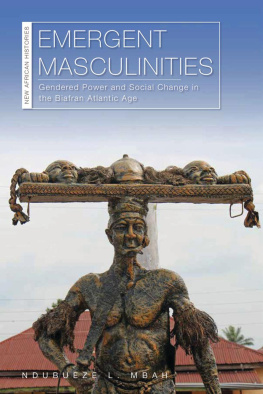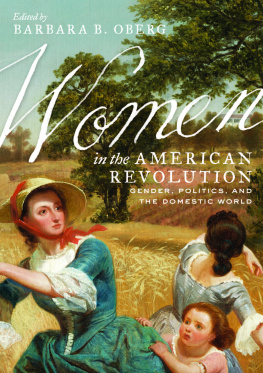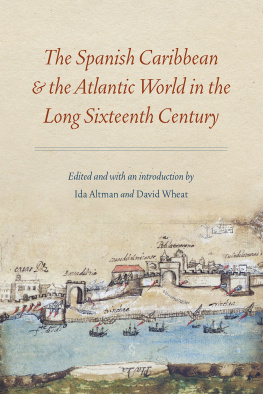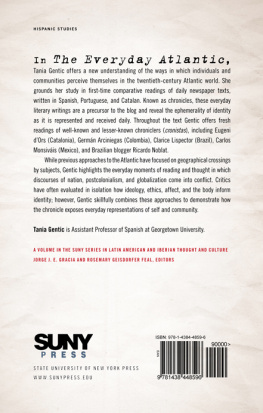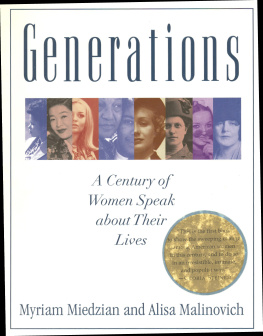Women of the Iberian Atlantic
Women of the Iberian Atlantic
EDITED BY SARAH E. OWENS AND JANE E. MANGAN

Louisiana State University Press
Baton Rouge
Published by Louisiana State University Press
Copyright 2012 by Louisiana State University Press
All rights reserved
Manufactured in the United States of America
LSU Press Paperback Original
First printing
Designer: Laura Roubique Gleason
Typeface: Ingeborg
Printer: IBT Global
LIBRARY OF CONGRESS CATALOGING-IN-PUBLICATION DATA
Women of the Iberian Atlantic / edited by Sarah E. Owens and Jane E. Mangan.
p. cm.
LSU Press Paperback Original.
Includes bibliographical references and index.
ISBN 978-0-8071-4772-6 (pbk. : alk. paper) ISBN 978-0-8071-4773-3 (pdf) ISBN 978-0-8071-4774-0 (epub) ISBN 978-0-8071-4775-7 (mobi) 1. WomenAtlantic Ocean RegionHistory. 2. WomenAtlantic Ocean RegionSocial conditions. 3. WomenIberian PeninsulaHistory. 4. WomenIberian PeninsulaSocial conditions. 5. Iberian Peninsula I. Owens, Sarah E., 1969II. Mangan, Jane E., 1969
HQ1818.85.W66 2012
305.420946dc23
2012011756
The paper in this book meets the guidelines for permanence and durability of the Committee on Production Guidelines for Book Longevity of the Council on Library Resources.

Contents
Introduction
Women of the Iberian Atlantic: Gendered Dimensions of Empire
SARAH E. OWENS AND JANE E. MANGAN
1
Navigating the Atlantic Divide: Women, Education, and Literacy in Iberia and the Americas
LISA VOLLENDORF
2
An Ocean Apart: Reframing Gender in the Spanish Empire
ALLYSON M. POSKA
3
Spanish Women in the Caribbean, 14931540
IDA ALTMAN
4
Indigenous Women as Mothers in Conquest-Era Peru
JANE E. MANGAN
5
Women and Kinship in Spanish East Texas at the End of the Eighteenth Century
CARLA GERONA
6
Cloistered Women in Health Care: The Convent of Jess Mara, Mexico City
NURIA SALAZAR SIMARRO AND SARAH E. OWENS
7
The Role and Practices of the Female Folk Healer in the Early Modern Portuguese Atlantic World
TIMOTHY D. WALKER
8
The Botany of Colonial Medicine: Gender, Authority, and Natural History in the Empires of Spain and Portugal
HUGH GLENN CAGLE
9
Mother Nganga: Women Experts in the Bantu-Atlantic Spiritual Cultures of the Iberian Atlantic World
RAS MICHAEL BROWN
10
Gendering the African Diaspora in the Iberian Atlantic: Religious Brotherhoods and the Cabildos de Nacin
MATT D. CHILDS
Acknowledgments
This volume would not exist without the support of the College of Charleston and the Carolina Lowcountry Atlantic World Program, who sponsored the initial conference, Women in the Ibero-American Atlantic (15001800), in February of 2010. Indeed, it was the intellectual spark from that conference that prompted us to pursue the present volume. We are also grateful for additional critical funding for the conference from the Program for Cultural Cooperation between Spains Ministry of Culture and United States Universities, the Grupo de estudios sobre la mujer en Espaa y las Amricas, and different entities at the College of Charleston, including the Department of Hispanic Studies, the Women and Gender Studies Program, the Program in Latin American and Caribbean Studies, and the School of Languages, Cultures, and World Affairs. In addition to economic support, we would like to acknowledge the contributors themselves, who researched the insightful and innovative essays that have made this project possible. In particular, Ida Altman offered a careful reading of the introductory chapter. The incisive feedback from two anonymous readers for the press helped shape both individual chapters and the volume as a whole. We owe a debt of gratitude to Alisa Plant for her expression of interest in the project at the beginning and for guiding us through the editorial process. Finally, we are thankful to have experienced the value of collaboration through editing this volume. Together, these essays provide a view of women in the Iberian Atlantic that no one scholar could achieve.
Women of the Iberian Atlantic
Introduction
Women of the Iberian Atlantic
Gendered Dimensions of Empire
SARAH E. OWENS AND JANE E. MANGAN
To read Women of the Iberian Atlantic is to watch a picture emerge, a collage of women participating in the creation of the Iberian Atlantic. The ten essays in this volume resist stereotypes of early modern women as one-dimensional, subservient, or secondary to their male counterparts, revealing the complex interplay of gender as related to race, class, and religious practices in the early modern Iberian Atlantic (15001800).1 While women of this era shared certain experiences, the essays as a whole point to the diversity of womens influences in the shaping of empire in the Atlantic. Womens activities in the fields of healing, ritual, literacy, and family shared intimate links with the politics and economics of the empire. While these complex ties prompted Ann Stolers influential work on the nineteenth-century empire, they have remained less explored for the first age of Iberian empire in the Atlantic.2 In these pages poignant stories of women, such as that of Josefa, who journeyed from Galicia, Spain, to Rio de la Plata in the Americas, or the mother ngangas, who were uprooted from their native West African villages and enslaved on the other side of the Atlantic in Brazil and Cuba, help to decipher links among early modern women. To date, much has been written on the women of the Spanish elite (especially queens and nobility),3 but here we have decided to shift the focus more to the interactions and mutual influences in the lives of marginalized and peripheral women. This collection offers a fuller perspective of the broad scope of the Atlantic basin, including not only women of Spanish descent but also of Portuguese descent, and not only indigenous women but also enslaved and free African women.
Empire and gender are the unifying factors for the historical subjects of this volume, as all were women who lived in some part of the Iberian world. What do the experiences of women on the Texas frontier have in common with those of a female servant in Portuguese Goa, or illiterate Portuguese folk healers with women of the African diaspora in the Caribbean? The shared history, culture, and experiences of the metro-pole shaped the colonial system in which women of the Iberian Atlantic functioned. The first wave of Atlantic expansion set the precedent in locations like Santo Domingo and Mexico. As empire expanded to far-off destinations such as Peru or Goa, both represented here, the imperial institutions forged in the first wave of empire carried over into these new regions. The Atlantic experiences of empire building, then, informed colonial societies in the Pacific and the Indian oceans as well. Though the locations might be as far apart as Lisbon and Mexico City, these areas had a unified set of laws and customs based on Iberian legal practices shaped in part by the medieval Spanish book of laws, the Siete Partidas. As Carla Gerona shows in her essay on the Texas frontier, even in the outermost borderlands of the Iberian empire we see remnants of the Iberian statutory code. The links between Iberian monarchy and Catholicism also signified religious models and prerogatives (while not implying religious hegemony). Many women who traveled from Iberia to their new environs carried with them elements of restrictive European gender ideology. Inevitably, gender practices were exported along with language, food, and material culture. Migrating women, such as female communities of nuns, bespeak empire in action. As empire expanded into new areas, so did hierarchies of gender and of racial discrimination. These chapters purposefully offer a gendered view of the early modern Atlantic world. In their sum, they highlight women as actors, no matter how peripheral or marginalized, in the creation of the Atlantic.


